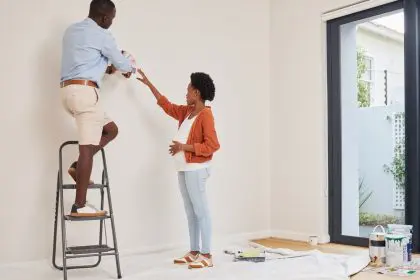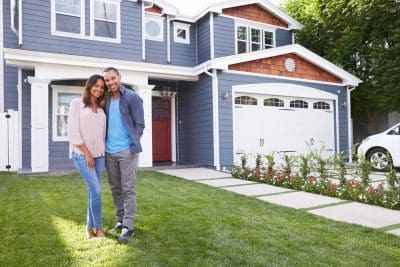Home improvements can significantly impact property value, but not always positively. While certain upgrades enhance appeal, others can make homes harder to sell and potentially decrease their worth in unexpected ways.
The kitchen conundrum
Overly customized kitchen renovations often fail to deliver expected returns. Professional-grade appliances and luxury finishes can actually deter buyers, particularly in mid-range neighborhoods where such upgrades feel out of place.
High-end materials like imported marble countertops or custom cabinetry frequently exceed neighborhood standards. These investments rarely recover their costs, especially when they create a price point that exceeds local market expectations.
Bedroom conversions backfire
Converting bedrooms into specialized spaces represents one of the most common renovation mistakes. Home gyms, craft rooms, and dedicated offices may serve current owners well, but reducing bedroom count directly impacts resale value.
Real estate data consistently shows that bedroom count significantly influences buyer interest and property value. Even temporary conversions can limit a home’s market appeal, particularly for families seeking traditional layouts.
The pool predicament
Swimming pools, while enjoyable, often decrease property value in many markets. Ongoing maintenance costs, safety concerns, and increased insurance premiums make pools a liability rather than an asset for many buyers.
Climate plays a crucial role in pool value. In cooler regions, pools may limit buyer interest significantly, as their usability window remains small compared to their year-round maintenance requirements.
High-maintenance landscaping
Elaborate landscaping can burden future owners with unexpected maintenance costs. Features like koi ponds, exotic plants, and intricate garden designs often deter buyers who prefer manageable outdoor spaces.
Water consumption concerns in many regions make high-maintenance yards particularly problematic. Native plants and simple landscaping typically offer better returns than complex designs requiring constant attention.
Technology troubles
Built-in entertainment systems and smart home features can quickly become obsolete. Permanent installations of rapidly changing technology often feel dated within years of installation, potentially decreasing home value.
Buyers frequently prefer the flexibility to install their own technology solutions. Built-in systems can feel restrictive and may even require costly removal or updates.
Over-customization issues
Bold paint colors and unique design choices can significantly impact marketability. While personal preferences matter for current owners, neutral palettes typically attract more buyers and maintain better resale value.
Wall-to-wall carpeting, once popular, now often decreases property value. Modern buyers generally prefer hardwood floors or other durable surfaces that offer more flexibility and easier maintenance.
Garage expansions
Oversized garages can detract from a property’s overall appeal, especially when they compromise yard space or alter a home’s exterior appearance dramatically. This renovation particularly affects urban and suburban properties where outdoor space carries premium value.
The cost-benefit analysis rarely favors extensive garage additions, as most markets show limited return on such investments.
The neighborhood factor
Perhaps the most crucial consideration in any renovation involves staying within neighborhood standards. Improvements that push a home’s value significantly above area averages rarely return their investment.
Real estate professionals consistently warn against overbuilding for the neighborhood. Even high-quality renovations can decrease property value when they create too large a gap between a home’s price and local market averages.
Making smarter choices
Understanding these potential pitfalls helps homeowners make better renovation decisions. Consider these factors when planning improvements:
Market alignment: Ensure upgrades match neighborhood standards and buyer expectations.
Flexibility: Choose modifications that future owners can easily adapt or change.
Maintenance costs: Consider the long-term upkeep requirements of any improvement.
Looking ahead
While personal enjoyment matters, considering future marketability remains crucial when planning renovations. The key lies in finding balance between current needs and long-term value preservation.
Successful home improvements enhance both livability and resale potential. Understanding which renovations might decrease value helps homeowners avoid costly mistakes while creating spaces they can enjoy.
This story was created using AI technology.















